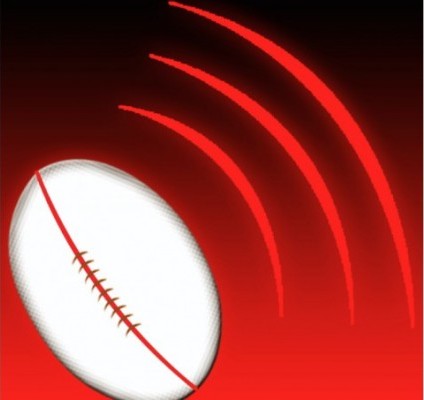Opinion: The Changing Profile of Talent Hotspots
Opinion: The Changing Profile of Talent Hotspots
An Opinion Column by Alex Goff—Last week was an interesting one in American college rugby, even when there were no games.
Major League Rugby held their draft, and following on that there was the RugbyTown 7s, where a decent number of college rugby players showed their stuff.
In all of that something struck me. We have, for many years, had a East Coast vs West Coast rivalry in rugby, a rivalry that is most easily seen in the argument over which is the best time of year to play. But there's also been a rivalry over where the best players come from—so much so that some years you've heard the grumble that talent-seekers just automatically look at California without considering the rest of the country.
Those from the middle of the country are usually caught up in a sort of "don't mind us" mindset wherein they're not even in the conversation.
Well, they're in the conversation now.
Help support what we do. Travel costs, website maintenance costs, web hosting costs, and equipment are all things we deal with. We love our sponsors, but our Patreon Patrons and Anonymous Patrons help us too. Go here to find out how you can help support what we do>>
Take a look at the MLR draft and where they players played in high school. Of the 39 players picked, California was still the top state (actually tied with Washington), but there's more to the story than that. Canada had eight picks, while two didn't play rugby in high school and six played their high school overseas. So that leaves us with 23 who played HS rugby in the USA. Sure, the West Coast is heavily represented with eight out of the 23, but it's the Midwest that seems to have put its hand up. Two players from Ohio and one each from Tennessee, Indiana, Missouri, and Illinois give us six from the Midwest. If we extend the definition to include any state in the Central or Mountain time zones, we get three more.
Good players do come out of the middle of the country, and do make an impact.
Take a look also at the USA U23 team that finished 2nd at the RugbyTown 7s. This, not that long ago, would have been a pretty West Coast-heavy team, but three of the key players—Nic Hardrict II, Will Chevalier, and Noah Brown, play their college rugby and played their HS rugby in the Midwest. Brown and Hardrict played at the same high school team, Penn HS in Indiana. The U23 team as a whole was kind of from all over. The Law brothers are from North Carolina and Chris Aurich is from South Carolina. There were two players who grew up overseas in EJ Freeman and Ryan Santos (Germany and UK for Freeman, Philippines for Santos), and a player from Colorado (Bastres) and a player from Pennsylvania (Musselman). Only two (Jasper Green and Kahanu Koi) came from California.
This is all probably a function of the steady improvement in the standard of play in college rugby. College programs all over, but especially in the Midwest, are stronger, and those programs recruit and attract players from high schools in the Midwest. In addition, the Midwest was, by and large, a little quicker to open up from COVID. As a result, more college teams played more rugby in 2021, and more high school teams were active compared to those in some other states. (It will be interesting to see how the high school classes of 2021 and 2022 fair in a couple of years when we're looking at top players—will those from regions that got back to almost-normal faster be ahead then?)
Now, of course, as we pointed out above, there were still four Californians drafted into MLR, and four Washingtonians (including two from the Tacoma Tsunamis) , so we're not talking about the West Coast being shut out, not at all. But maybe scouts are casting their net wider, and maybe that's because they have to.











